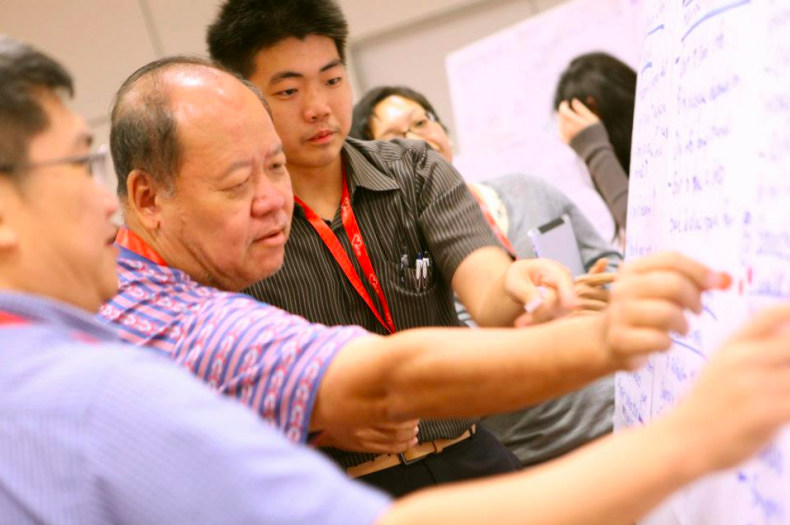
There has been much discussion among Singaporeans about what the government should do to tackle social needs in Singapore, and how it should keep tabs on emerging gaps in our policies and service systems. But there is a case to be made for more Singaporeans themselves to participate in identifying social needs and service gaps.
The Internet now offers easy access to different types of data, information and research. One might argue that the bulk of administrative data and national-level surveys are not fully available online, due to data protection and privacy issues, among other things. But in truth, what is available is already quite rich. The challenge is how to take stock and make sense of this diversity of information to better understand the current and emerging social problems and issues in our midst, be it on drug abuse, vulnerable seniors or transnational marriages.
The term “open collaboration” has been used in online communities to describe how people have come together to openly share information and ideas to further specific causes. Open collaboration can be a solution – and an alternative – to the Singaporean mentality of relying on a specialised, centralised agency to deal with social problems.
In 2013, I conducted a needs-assessment project at the National Council of Social Service to find out about end-of-life issues faced by vulnerable seniors. Researchers and administrators identified the trends and assessed the ability of the current social service system to meet needs. Interviews were then conducted with social service providers, experts in ageing and vulnerable seniors. This made the project findings more grounded, relevant and informative. In order to seek inputs from others, we developed a framework that could consolidate and make sense of diverse information. While this was a collaborative project, it was not open collaboration as the principal investigators decided who could participate and who we wanted to collaborate with. However, I realised that with a framework in place and if the larger community is empowered to contribute, knowledge of a subject can grow continuously and exponentially.
How could open collaboration work in the Singapore context? With a high Internet penetration rate, conducting social service needs assessments online would support collective production and dissemination of information, as there are low barriers to entry and exit. But it is also important to have an analytic framework and information infrastructure to support the collation, cataloguing and analysis of information so that participants can intuitively know how to access the information, and how to contribute to it.
Such a framework should also help to clarify what is known and not yet known, so that subsequent data collection efforts can be more targeted and strategic—so that the collaborative effort can become more coherently accumulative. Because the product of the collective effort is made available to contributors and non-contributors alike, people have the freedom and the right to share, use and build upon the work.
An important benefit of open collaboration and collective effort is that it shifts the mindset from over-protectionism driven by insecurity to one of honesty and transparency. When an agency specialises in a task or domain area, they have to live up to expectations and be as competent and authoritative as possible. They may not be receptive to external observers challenging their information, and may end up becoming more wary of revealing information in order to manage their reputation. It would be unhealthy if their focus ends up being on managing the perceptions of stakeholders.
Collective needs assessment can keep these possibilities in check. When a product is the result of a collective effort, it cannot provide singular glory to any one organisation or individual, and therefore it may be easier to ensure that the focus is consistently on the technical task at hand.
Open collaboration encourages participants to confront their own knowledge gaps, so that others may come and help, and therefore creates a culture of honesty and full disclosure. Experts who are willing to contribute become seen as assets instead of competitors. For example, a social worker who has interacted with only some vulnerable seniors in her care can suggest that the reason why seniors do not make end-of-life plans is likely due to a cultural stigma – they are reluctant to discuss dying. An academic who has actually done a nationally-representative survey on death attitudes can then provide more conclusive findings on the extent and prevalence of this cultural stigma. And if such a survey had not been done, the community can discuss whether this knowledge gap is actually worth investigating by doing a survey that is likely to be expensive.
Finally, open collaboration also places positive peer pressure on those who can make a difference to needy communities. For instance, if we wanted to understand to what extent children need support while their parents are incarcerated, knowing whether there are 50 or 500 of such children would allow the voluntary agencies, grant-makers and other community groups to decide if it is worth doing something to address this issue. Open collaboration will encourage the parties involved to surface crucial information that can be used specifically to help those in need. Positive examples of this will give a filip to efforts to promote greater transparency and information-sharing in Singapore.
Dr Justin Lee is a Research Fellow with the Society & Identity cluster at IPS.
Top photo from Our SG Conversations Facebook.
